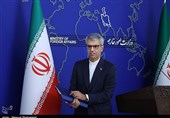WHO Chief Warns COVID-19 Pandemic Is 'Most Certainly Not Over'
WHO Director-General Tedros Adhanom Ghebreyesus warned on Sunday that the COVID-19 pandemic is “most certainly not over,” underscoring that governments will put themselves and their people in jeopardy if they begin to slack off.
Ghebreyesus spoke at the United Nations in Geneva on Sunday during the first day of the 75th World Health Assembly, Sputnik reported.
Ghebreyesus dangled a silver lining for those at the meeting, however, saying the acute phase of the pandemic could still end this year if certain goals are reached. “Ending the acute phase of the pandemic must remain our collective priority,” he added, emphasizing that care must be taken to watch and address any evolutions of the SARS-CoV-2 virus.
“Learning to live with COVID cannot mean that we give this virus a free ride. It cannot mean that we accept almost 50,000 deaths a week from a preventable and treatable disease,” cautioned Ghebreyesus.
“There are different scenarios for how the pandemic could play out and how the acute phase could end. But it’s dangerous to assume that omicron will be the last variant or that we are in the endgame,” Ghebreyesus said at the start of a WHO executive board meeting this week. “On the contrary, globally, the conditions are ideal for more variants to emerge.”
The WHO chief underlined that almost 1 billion people in lower-income nations have yet to be vaccinated, and that just 60% of the world’s population has been vaccinated. Africa, he added, has reported rising death rates due to the virus and is the continent with the lowest vaccination coverage.
Only 57 wealthy countries have vaccinated 70% of their people, says Ghebreyesus, a percentage goal set by the World Health Organization for every country by the end of the year.
“In all, we see vaccine hesitancy driven by misinformation and disinformation,” he continued. “The pandemic will not magically disappear, but we can end it.”
During the meeting the WHO chief also blamed “insufficient political commitment to roll out vaccines,” as well as issues with “operational or financial capacity” as a cause of the low vaccination rates in certain countries.
“Let me put it plainly: If the current funding model continues, WHO is being set up to fail,” he said. “The paradigm shift in world health that is needed now must be matched by a paradigm shift in funding the world’s health organization.”
Ghebreyesus is expected to begin a second five-year term this week.






